Has a President Ever Appointed a New Supreme Court Justice in His Last Year?

By:
During his statement after the death of Supreme Court Justice Antonin Scalia, President Barack Obama confirmed that he will indeed nominate Scalia's replacement.
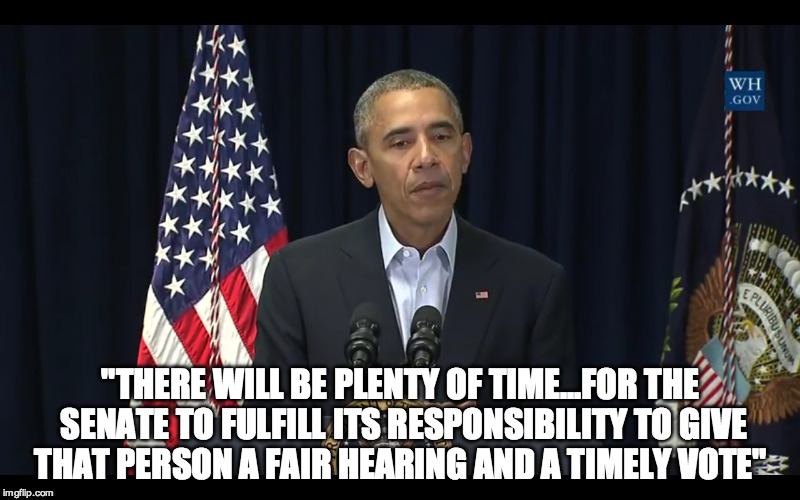 White House YouTube
White House YouTube
That raises the biggest political question so far in 2016: Is it fair for President Obama to nominate a new Supreme Court justice during the final year of his presidency? Republicans reject the idea that Obama should have any say over Scalia's replacement. Given that this is Obama's final year, they've said that the president should stand down and allow his successor to pick the next Supreme Court justice.
Ronald Reagan is actually The best reason for president obama to appoint a new nominee
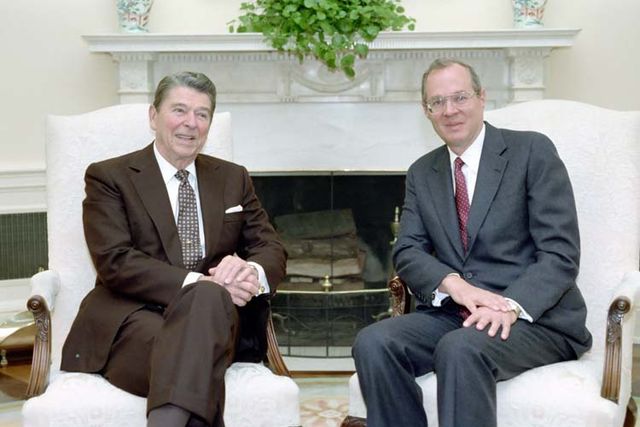 White House Photographic Office - wikipedia.org
White House Photographic Office - wikipedia.org
During this fight, Democrats will cite President Ronald Reagan's appointment of Justice Anthony Kennedy, who was confirmed by a Democratic-controlled Senate in Reagan's final year in office, on Feb. 8, 1988. (Basically a few days before where we are right now in Obama's final term.) Republicans, however, will attempt to distinguish the Kennedy situation by arguing that Kennedy was nominated earlier, in November 1987, and that the vacancy Kennedy filled opened up further back in June of that year. (Reagan failed at confirming two previous nominees to fill that open spot.)
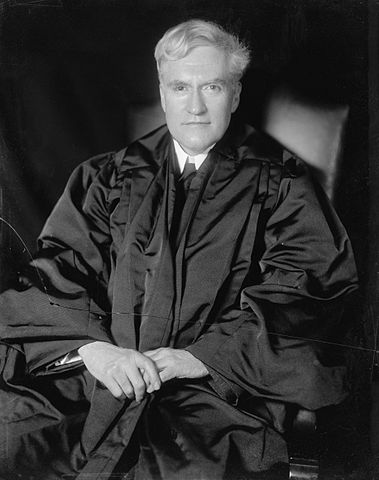 Library of Congres - wikipedia.org
Library of Congres - wikipedia.org
You have to go back to the appointment of Justice Benjamin Cardozo in February 1932 to find another, similar situation. Republican President Herbert Hoover managed to get Cardozo on the bench through a Senate that was split in half. (The Republicans controlled the Senate only by virtue of the vice presidential tie breaker vote.) How did he pull it off? For one, Cardozo was widely respected, receiving a unanimous vote for confirmation from both parties. Secondly, Hoover may have been trying to save himself in an election year by appointing a nominee suitable to Democrats. (Democrat Franklin D. Roosevelt went on to defeat Hoover in November.)
Roosevelt himself would later make an election year appointment in 1940, but that example is not very instructive to our current predicament because Democrats dominated the Senate with a 38-seat advantage. Cardozo and Kennedy, on the other hand, were confirmed by much more closely divided Senates and are therefore good examples for Obama to cite in his upcoming battle with Republicans.
The longest vacancy is more than a year, but it was in the 1840s.
We've also had a vacancy longer than a year, the length of time it would be if Obama does not get another justice confirmed.
Two justices died during President John Tyler's term (1841-1845). To fill those, he nominated nine people to the Supreme Court during his final 15 months in office, and eight were rejected. This led to the longest Supreme Court vacancy in history, with Tyler not filling either seat until more than a year later.
The other lame duck presidents who have had nominations denied were much closer to the ends of their terms than Obama is right now:
- President John Quincy Adams tried to nominate a new justice after he'd already been defeated for reelection in 1828. That nomination failed.
- President Millard Fillmore had a vacancy open in July of his final year (1852). He was not able to successfully fill it.
- A month before he left office, President James Buchanan was denied the opportunity to fill a vacancy.
- President Lyndon Johnson was unable to fill a vacancy that would have been created by the retirement of Justice Earl Warren in June 1968. (When Johnson's attempt to replace him was denied in October, Warren chose not to retire until the following year.)
(H/T Congressional Quarterly's History section for some of the historical context)
This is extremely important.
This is a key question because Scalia was one of the five conservatives on the bench, giving conservatives a 5-4 majority on close cases. A more liberal Obama appointee would swing the court to a 5-4 advantage for liberals.
Republicans have leverage here — they control the Senate, which must approve any appointee to the court. Furthermore, they can filibuster any nominee to prevent the Senate from even voting on the president's nominee.
Republican Sen. Mitch McConnell, the leader of the Senate, has already said that an Obama selection would be unfair.
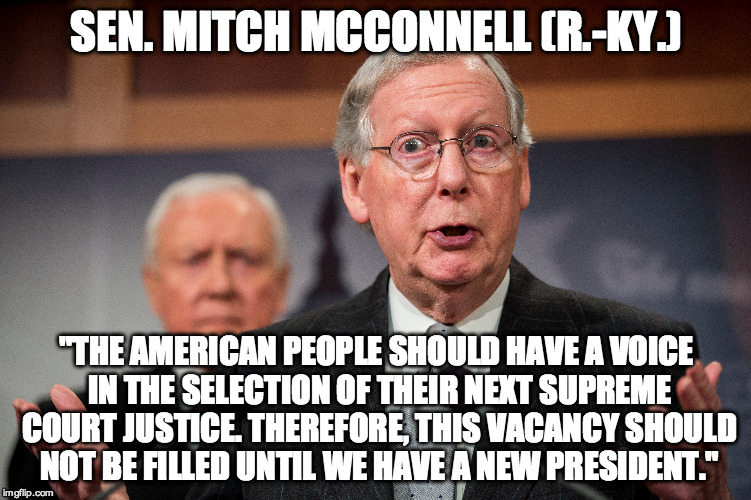 AP/ Bill Clark/CQ Roll Call
AP/ Bill Clark/CQ Roll Call
"The American people should have a voice in the selection of their next Supreme Court Justice. Therefore, this vacancy should not be filled until we have a new President,” McConnell said Saturday in a statement after Scalia's death.
Presidential candidate and Sen. Ted Cruz agrees:
 AP Photo / Matt Rourke
AP Photo / Matt Rourke
Democrats, of course, don't see it that way. Democratic Sen. Harry Reid, the Senate Minority Leader, answered McConnell with a strong statement against waiting 11 months for a new nominee.
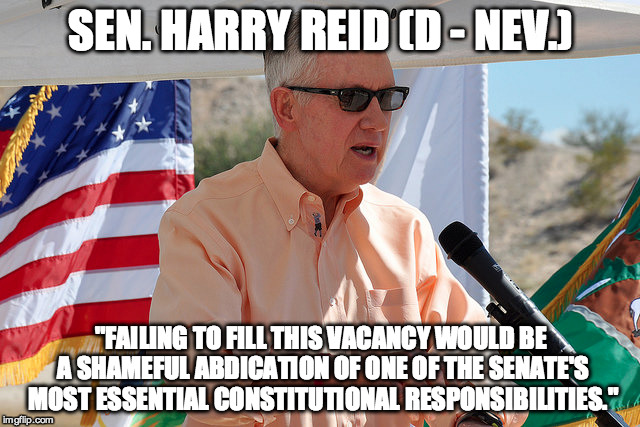 Lake Mead National Recreation Area - flickr.com
Lake Mead National Recreation Area - flickr.com
“Failing to fill this vacancy would be a shameful abdication of one of the Senate's most essential Constitutional responsibilities,” Reid said in a statement.
A huge part of this debate will center around whether it's too "late" in Obama's term for him to nominate another justice. Sen. Patrick Leahy, the ranking Democrat on the Senate Judiciary Committee, urged the Senate to confirm a new appointee from Obama, saying that "[i]t is only February." Obama has about 11 months left in office.
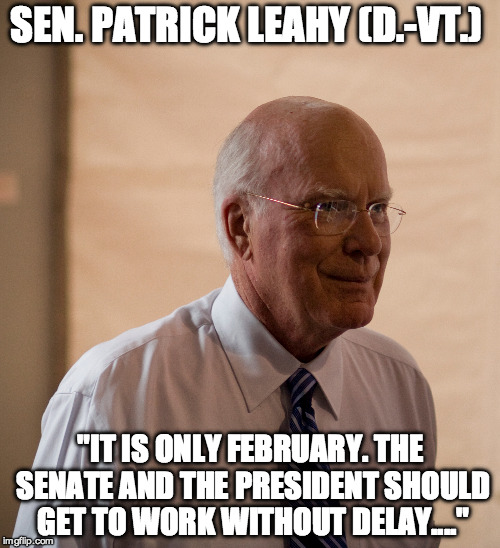 Mike Disharoon / Flickr - flickr.com
Mike Disharoon / Flickr - flickr.com
Editor's note: Added more detail about FDR's 1940 nomination of Justice Frank Murphy.
